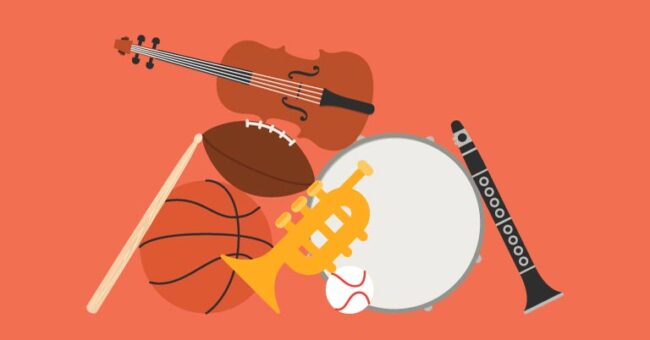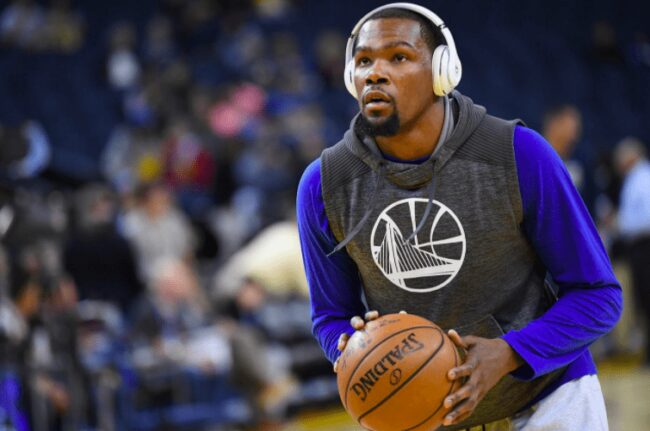Are you looking for an inspiring way to add some extra energy and passion to your sporting events? Music has the power to drive team spirit and boost motivation.
In this article, we’ll explore the role of music in creating unforgettable sporting experiences.
Music and Sports: How They Intersect

The relationship between music and sports dates back to the ancient Greek Olympic Games, where athletes participating in individual events would perform special songs called Choruses. Today, sporting events around the world use music to motivate and energize both athletes and spectators alike. Music can increase an athlete’s energy level during a competition, as well as provide psychological support for the outcome of an event.
Sports teams have become increasingly savvy in the way they use music to create a sense of team unity and convey a particular message or identity. From rock anthems that inspire take-no-prisoners intensity to hip-hop ditties that hype up march madness predictions, sports teams are looking to curate tracks that perfectly convey their message over the loudspeakers and across TV broadcasts. Many teams even have official theme songs they use throughout their naming ceremony rituals or at victory ceremonies.
The Impact of Music on Performance

It is believed that certain types of music can have a positive impact on athletes, allowing them to reach peak levels of performance. This is dependent upon tempo, rhythm, and familiarity. If a song is too slow-paced or too fast-paced it can have a negative effect on an athlete’s concentration and coordination and ultimately their performance level.
Music with strong rhythms tends to be most effective and preferably songs that the athletes are familiar with as they will be less likely to be distracted or lose focus during their event when listening to their favorite songs.
Research has also established that lyrical content and meaning can significantly affect the outcome of an athlete’s performance – words with negative connotations such as aggression or anger do not tend to provide motivation for athletic activities like songs with empowering lyrics to do, for example.
Furthermore, it is important for coaches or teams to consider not only the effects of one song on athletes individually but also how it will work as part of a playlist — again taking into account both tempo, rhythm, and word choice — in order for them to reap all potential benefits from an individual piece as well as an entire setlist.
Music as a Motivational Tool
At major sporting events, you may hear songs that are specifically designed to boost performance or evoke a sense of pride in the sport itself. For example, songs like “We Will Rock You” by Queen have become anthems for teams around the world. Powerful lyrics that unite fans have been crafted exclusively for national teams such as “Gemini” by France’s national football team or “Espirito do Brasil” by Brazil during the 2014 FIFA World Cup.
Other music genres such as hip-hop or rock may be used to hype up athletes before competing, creating a motivation to push harder towards victory or perfection with tunes like “Lose Yourself” by Eminem frequently chosen for use in boxing matches or professional sports videos. Even distinct styles of music from regions around the world such as Dhol drums from India offer a rousing form of encouragement at sporting events where large crowds gather together to witness them in person.
For many generations now, the power of music has been proven to enhance sports capabilities both in preparation and results; it has become an indispensable tool used to bring out one’s best performance on game day no matter what activity they are involved in!
Music and Team Building

In sporting events, music plays an important role in team building. Songs can be used to energize the players and create an atmosphere of excitement and camaraderie. Music can also help motivate athletes during difficult workouts and competitions, helping them to stay focused on their goals.
One way that many teams use music to create a sense of unity among their players is by developing custom-made team songs or rallying cries. These songs are designed to evoke emotions that force team members to rally together and work as one cohesive unit toward success. “We Are One” by Yolanda Adams was used as the official song for Team USA before the 2012 Summer Olympics, while other nations used national anthems or classic rock numbers as motivation for their athletes competing at major events like the World Cup or Olympics.
The Benefits of Music in Sporting Events

One primary benefit is it evokes memorable experiences for fans. Music develops a connection between spectators and teams that even the fiercest competitor can appreciate. It helps to create an ambiance in which competition takes on its own identity, providing an opportunity for athletes to express themselves with songs that have been carefully selected by their local organization.
In addition, music can create opportunities for crowd engagement during downtimes when reps are typically less exciting — encouraging fan participation through simple sing-alongs or clap-along creates a “we’re all in this together” mentality that creates unity amongst fans and players alike. Furthermore, being able to cheer along with team-specific chants helps unify groups both large and small; spurring on chants made famous by rival teams further reinforces solidarity throughout entire cities – sparking local pride and creating unforgettable moments within any region.
On another note, studies have found that music is also able to affect performance levels in precision-related tasks such as shooting three-pointers or free throws — increasing accuracy levels due to measurable biological impacts such as heart rate changes linked to certain songs depending upon what type was being played (such as Hip-Hop or Rock). For any sport dependent upon strong mental agility these results are extremely beneficial from both a training/practice standpoint but also during live/in-competition execution moments too — allowing athletes to perform at maximum capacity every event thanks to strategic song placements throughout various intervals.
Conclusion

Whether used as background music or in conjunction with anthems, songs are an integral part of the sports experience that can be felt deeply by both attendees and viewers. By understanding how performance is enhanced by musical experience, sporting events will continue to discover even greater ways of tapping into the psychology of musical expression that helps make these games more exciting for everyone involved.
